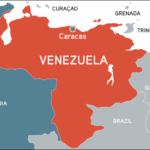
SYDNEY – In a significant move to enhance bilateral relations, India and Australia have signed a migration pact aimed at facilitating the movement of students, academics, and professionals between the two nations. The agreement was announced during Indian Prime Minister Narendra Modi’s visit to Australia, marking the sixth interaction between Modi and Australian Prime Minister Anthony Albanese since Albanese assumed office last year.
At a joint press briefing following their bilateral meeting in Sydney, Albanese expressed his pleasure at witnessing the exchange of the Australia-India migration and mobility partnership agreement. He stated, “This arrangement will promote the exchange of students, graduates, researchers, and businesspeople, expand our people-to-people ties, and enhance cooperation in preventing people smuggling.”
The migration pact signifies a significant stride in the growing partnership between India and Australia. It will not only facilitate the movement of individuals but also foster closer ties in the fields of education, research, and business.
Furthermore, India has announced its plans to establish a new consulate in Brisbane, adding to the existing consulates in Perth, Melbourne, and Sydney. This move highlights India’s commitment to strengthening diplomatic presence in Australia and facilitating consular services for Indian citizens in different regions of the country.
The two nations also finalized the Terms of Reference for the India-Australia Hydrogen Task Force, as part of their shared commitment to addressing climate change. The task force aims to explore green hydrogen opportunities and will report to the bilateral ministerial dialogue. By investing in initiatives like the task force, India and Australia are actively working towards achieving their energy targets and reducing global emissions.
During their discussions, Prime Minister Modi and Prime Minister Albanese expressed optimism regarding progress towards a comprehensive economic agreement. They also exchanged views on defense and security, critical minerals, and education, highlighting the multifaceted nature of their bilateral relationship.
In addition to the high-level meetings between the prime ministers, External Affairs Minister S Jaishankar held a meeting with his Australian counterpart, Penny Wong, further reinforcing the diplomatic ties between the two countries.
Prime Minister Modi also engaged in additional meetings with Australia’s Governor-General David Hurley and Opposition Leader Peter Dutton, further solidifying the bonds between the nations.
The migration pact, the establishment of a new consulate, and the commitment to green hydrogen opportunities demonstrate the shared vision and commitment of India and Australia towards strengthening their strategic partnership. These initiatives will not only facilitate greater people-to-people exchanges but also promote cooperation in key sectors such as education, research, and renewable energy, ultimately benefiting both nations and fostering regional stability.










